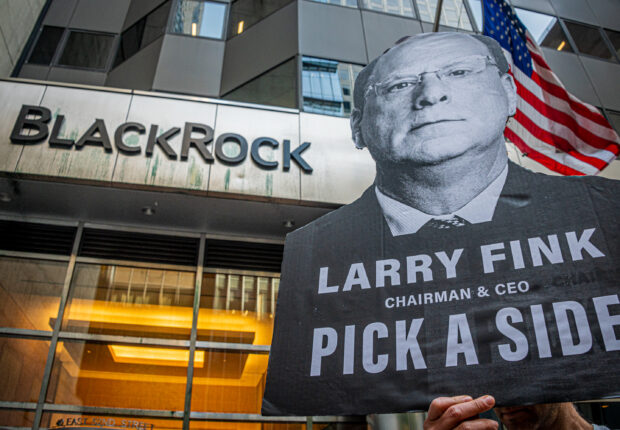After the failure of another UN climate conference, it's important to pay attention to a hopeful trend: more and more global finance institutions are getting out of fossil fuels.

In the wake of another failure of the world’s governments to agree on a plan to save our future from the climate crisis, you may have missed a quieter story.
The last few weeks have seen a string of announcements from major financial institutions making moves to get out of the worst fossil fuels such as coal. While these new policies all need improvement, these are hopeful signs that the biggest players in finance are feeling the pressure from activist campaigns to change.
Here are 5 hopeful stories to end the year on a good note:
Goldman rules out funding coal, Arctic drilling
In a huge win for our partners at the Sierra Club and RAN, Goldman Sachs announced yesterday the strongest fossil finance policies of any US bank. Goldman “ruled out direct finance for new or expanding thermal coal mines and coal-fired power plant projects worldwide, as well as direct finance for new Arctic oil exploration and production.” according to a RAN press release.
“With this announcement, Goldman Sachs joins a growing number of major financial institutions rejecting drilling in the Arctic. More than a dozen of the world’s largest banks have made similar commitments. Goldman Sachs is the first major American bank to prohibit new Arctic oil financing, and the first major American bank to rule out funding new thermal coal mining and coal power projects worldwide.” says the Sierra Club.
Liberty Mutual takes baby step away from coal
Was it the growing public pressure including almost monthly actions outside their Boston offices, or perhaps Bill McKibben’s prominent article in the Boston Globe? Regardless of the reason, this week insurance giant Liberty Mutual, a top 6 insurer of coal worldwide with over $8.9 billion invested in fossil fuel companies, made a small but important step in addressing its climate problem.
According to this statement from RAN, “In response to a groundswell of public pressure, Liberty Mutual has taken a first step towards reducing its role in fuelling the climate crisis. But the company still lags far behind what the science says is necessary, and does not match best practice among U.S. and global peers.”
Credit Suisse stops financing all coal
Switzerland’s second biggest bank announced a much more clear-cut policy around coal finance. According to Reuters, due to public pressure (ahem!) they will stop financing all new coal plants.
“The bank has decided to no longer provide any form of financing specifically related to the development of new coal-fired power plants. This is in addition to the bank’s existing policy of not providing any form of financing that is specifically related to the development of new greenfield thermal coal mines.” the firm said in a statement.
A huge hat tip to our European partners Urgewald and BankTrack for their successful pressure campaign.
Standard Chartered leads UK banks in coal policy
London and Hong Kong based Standard Chartered announced they were withdrawing from the lending consortia of three major new coal projects in Asia.
According to a statement from our partners at Market Forces, their announcement “also includes a new coal phase-out commitment covering all financial products and services which should see the bank ending its support for thermal coal dependent companies by 2030. With this policy revision, Standard Chartered becomes the most advanced major UK-based bank in terms of explicitly restricting general corporate support to coal clients.”
Japan’s biggest pension dumps BlackRock on climate grounds
And in perhaps the strongest sign yet that pressure on big finance is working, the world’s largest pension fund was reported to have moved their business away from BlackRock earlier this year due to their poor climate policies.
According to ImpactAlpha the Japanese Government Pension Investment Fund with $1.6 Trillion under management moved $50 Billion out of BlackRock to Legal and General. L&G is another large asset manager that has done what BlackRock says is impossible: proving a stronger ESG offering that includes engagement and then divestment if climate concerns are not addressed.
“If you cannot divest, it’s like going into negotiations with one hand tied behind your back. If management chooses to ignore our views, there is an escalation process to drive action.”
— Legal and General’s John Hoeppner
Taking notes, BlackRock?
So while governments continue to greatly disappoint us all with their inability to respond to the climate emergency, these green shoots of action in the world of finance offer some much needed hope for 2020 and beyond. See you next year to ratchet up the pressure even more.

